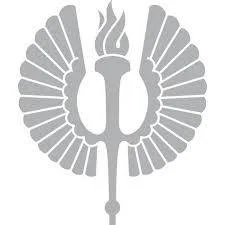
BrainQuake’s cognitive breakthroughs are the focus of a growing number of research projects around the world.
The BrainQuake Mathematics Research Project™
U.S. Department of Education
2015: funded by the Department of Education in connection with BrainQuake’s SBIR grant, the educational research nonprofit organization WestEd carried out an extensive study of Wuzzit™ Trouble usage. The new study involved six teachers and over 200 5th and 6th grade students across two schools in the San Francisco Bay Area, providing a detailed examination of the educational effectiveness of the game.
2016-18: the Department of Education funded Phase II, supporting BrainQuake to develop a robust platform of new puzzles, assessment metrics and instructional tools (including the proprietary BrainQuake Score).
2021: funded by the Department of Education, we developed a prototype assessment based on our Tanks app and its digital manipulative to assess student mastery of proportional reasoning and validated it as an assessment against proportional reasoning questions from a large, established standardized test.
Download the 2015 Phase I Report
Download the 2018 Phase II Report
Stanford University
World-renowned mathematics education expert Dr. Jo Boaler led a small pre/post-impact comparison group study, which was published in the International journal of Serious Games, October 2015.
Download Summary
Download the Paper
Download Journal Editorial
View Dr. Pope's Prezi
Tampere University of Technology
A Finnish-led study explored learning and engagement in Wuzzit™ Trouble in middle school classes in Finland and California. The International Journal of Serious Games published the findings in October 2015.
Northeastern University
Northeastern’s Game-Based Learning Lab analyzed anonymous BrainQuake data using the University’s proprietary analytics. A 2014 paper was presented at the International Conference of the Learning Sciences Workshop on Learning Analytics for Learning and Becoming a Practice (2014). A 2015 paper was published in Foundations of Digital Games 2015.
University of Oxford
Dr. Anne Watson's Pedagogy Analysis of the Introductory Learning of the Introductory Learning Ramp in Wuzzit™ Trouble reviewed the deep learning principles behind the initial puzzles in the app.
Satakunta University & Stanford University
BrainQuake’s Chief Scientist collaborated with Science Advisory Board member Dr. Harri Ketamo to study the feasibility of game-based assessment to measure national educational performance.
University of Turku
University of Turku, Finland, Tampere University of Technology, Finland, and Stanford University. BrainQuake’s Chief Scientist collaborated with Science Advisory Board member Dr. Harri Ketamo of Turku University and Dr. Kristian Kiili of Tampere University of Technology on a study that provided evidence for the efficacy of using learning games to assess performance. The paper was accepted for presentation at the American Educational Research Association (AERA) National Meeting in New York City in April 2018, and was published in the conference proceedings.
Connected Learning Summit
This paper describes a large-scale, randomized control study examining how BrainQuake’s suite of puzzle games impacts students’ mathematics achievement and attitudes. The work provides a concrete illustration of how understanding of deeper cognitive processing can be leveraged to design learning games that effectively support students in reasoning in mathematics.
University of Lapland & Beijing Normal University
Researchers at the Centre of Media Pedagogy of the Faculty of Education at University of Lapland, Finland, the Faculty of Education at the University of Oulu, Finland, Stanford University, and the Learning Science Lab at the Advanced Innovation Center of Future Education at Beijing Normal University, China collaborated in this study. Conducted in China, this research examined the way math teachers in China incorporated BrainQuake’s product into their classroom instruction and the impact it had on the students’ learning.











